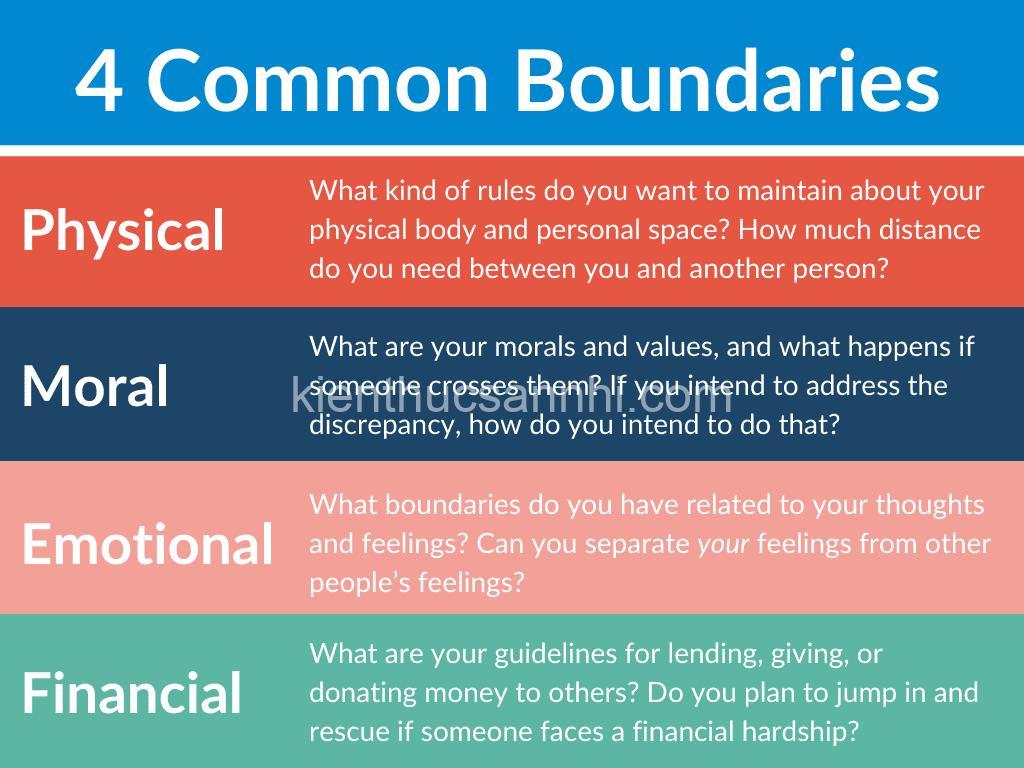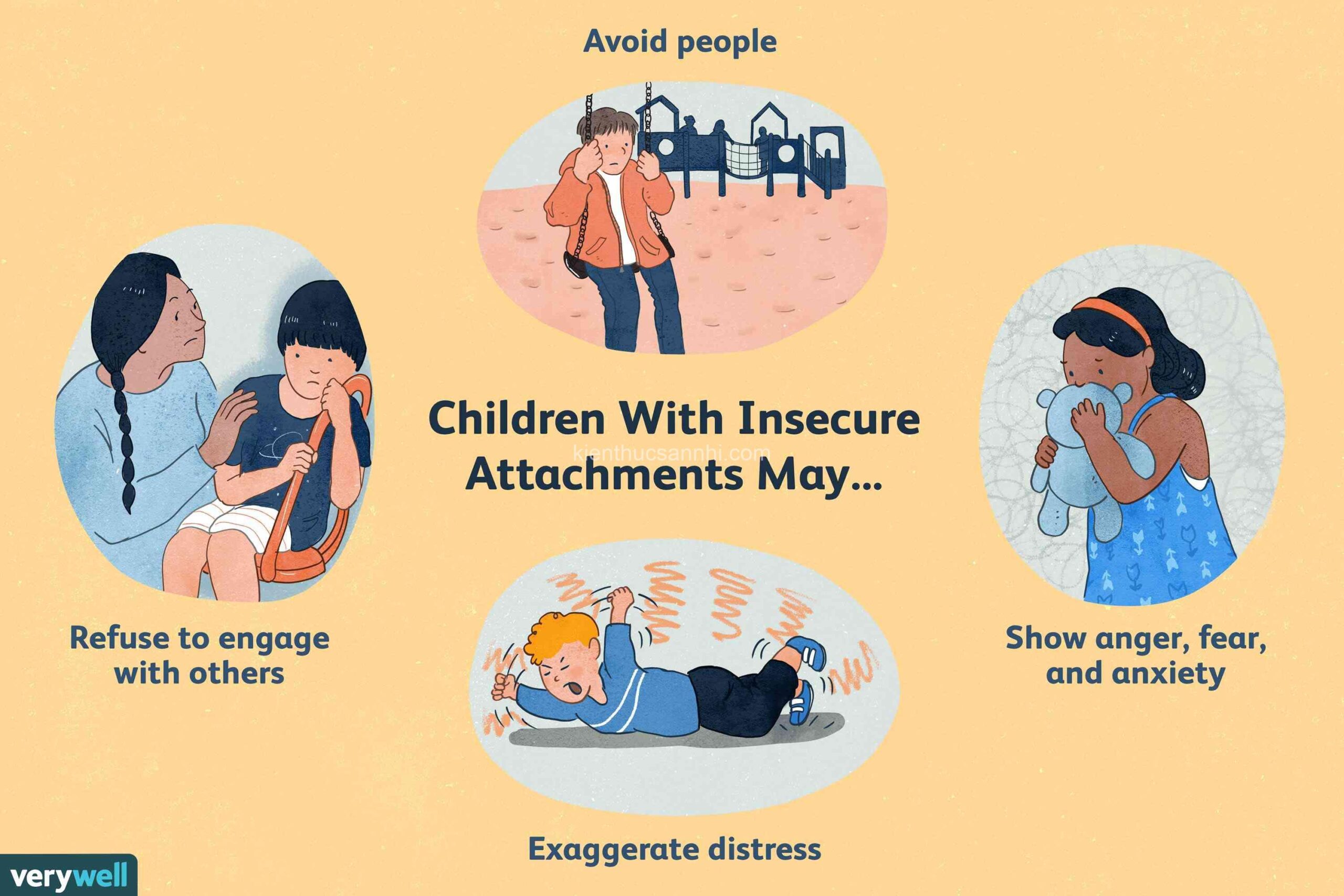
Setting Boundaries with Family & Friends: Importance & How-To Guide. In today’s article, kienthucsannhi.com will explore with you in the most detailed and complete way. See now!
Defining Boundaries and Their Importance in Relationships
Setting boundaries is a critical aspect of healthy relationships. Think of boundaries as invisible lines that protect your physical, emotional, and mental well-being. They help you define what you are willing to tolerate, what you value, and how you want to be treated.
Why are boundaries important?
Healthy boundaries allow you to create a space for yourself where you feel safe and respected. They can lead to improved communication, reduced conflict, and stronger relationships. Boundaries help you:
- Gain greater self-respect and self-esteem: When you set boundaries, you show yourself that you value your needs and well-being. This builds confidence and strengthens your sense of self-worth.
- Improve communication and relationships: Clear boundaries help you communicate your needs and expectations more effectively. This reduces misunderstandings and conflict, fostering healthier, more respectful relationships.
- Reduce stress and conflict: When you establish and enforce boundaries, you minimize the chances of feeling taken advantage of or feeling drained by others. This can significantly reduce stress and conflict in your relationships.
- Increase personal fulfillment: Boundaries allow you to pursue your own goals and interests without feeling obligated to constantly meet the needs of others. This leads to greater personal satisfaction and a stronger sense of fulfillment.
Without healthy boundaries, you might feel:
- Taken advantage of: This happens when you constantly feel like you’re putting other people’s needs before your own.
- Resentful: Over time, you might start to harbor resentment towards the people who take advantage of your lack of boundaries.
- Drained: Constantly giving without receiving can lead to emotional and mental exhaustion.
- Unsure of your own needs and wants: Lack of boundaries can create confusion about your own values and what truly matters to you.

Identifying Your Needs and Values
Before setting any boundaries, it’s crucial to understand your own needs and values. Self-reflection is essential in this process. Take time to consider:
- What are your non-negotiables? These are the things you will absolutely not compromise on.
- What are your values? What are the principles that guide your actions and beliefs?
- Where do you feel most vulnerable in your relationships? This might be in areas like emotional support, personal space, or financial assistance.
Identifying your needs and values will allow you to set boundaries that are aligned with your personal well-being. It’s essential to remember that everyone has different needs and values. What matters most to you might be less important to someone else, and vice versa.
Setting Clear and Concise Boundaries
Now that you’ve identified your needs and values, you’re ready to start setting boundaries.
Communication is Key:
- “I” Statements: When communicating your boundaries, use “I” statements to focus on your own feelings and needs without blaming the other person. For example, instead of saying, “You always make me feel ignored,” you could say, “I feel ignored when we don’t make eye contact while we’re talking.”
- Be Direct and Specific: Clearly state your boundaries and explain the consequences of those boundaries being crossed.
- Be Assertive: This means expressing your needs and expectations confidently and respectfully. You can practice assertiveness by:
- Maintaining eye contact
- Using a firm and calm tone of voice
- Expressing your needs clearly and concisely
- Offer Alternatives: If possible, offer alternative solutions that align with your boundaries.
Common Boundary Types:
- Physical Boundaries: These relate to your personal space, belongings, and privacy. For example, you might set a boundary about people entering your home without asking or respecting your space.
- Emotional Boundaries: This relates to your feelings and emotional well-being. For example, you might set a boundary about not being around people who are constantly complaining or negative.
- Mental Boundaries: These relate to your thoughts and opinions. For example, you might set a boundary about not discussing certain topics or engaging in debates that drain your energy.
- Time Boundaries: These relate to your time management and availability. For example, you might set a boundary about not being available for calls or texts after a certain hour.
- Financial Boundaries: These relate to your money and financial support. For example, you might set a boundary about not lending money to friends or family members.
Enforcing Boundaries
Setting boundaries is only half the battle. You also need to consistently enforce them to make them effective.
Consistency is Key:
- Be Firm and Consistent: Don’t let others cross your boundaries without consequences. If you allow them to cross your boundaries one time, it might be harder to enforce them in the future.
- Don’t Feel Guilty: Setting boundaries can sometimes lead to guilt, especially if you’re concerned about upsetting others. Remind yourself that you are taking care of yourself, which is crucial for your well-being.
- Manage Your Emotions: When someone pushes your boundaries, it’s natural to experience emotions like anger, frustration, or sadness. Try to manage these emotions in a healthy way:
- Take a deep breath: This will help you regain control of your emotions.
- Step away from the situation: Take some time to calm down and process your feelings before responding.
- Express your feelings calmly: When you’ve calmed down, communicate your feelings and the reason why the person’s behavior is crossing your boundaries.
Dealing with Resistance:
- Expect Resistance: Be prepared that others might not initially accept or understand your boundaries.
- Stay Calm and Assertive: Resist the urge to argue or become defensive.
- Focus on the Positive: Remind yourself that boundaries are a sign of strength, not weakness, and that they will ultimately lead to more respectful and fulfilling relationships.
- Set Consequences: If someone continues to disregard your boundaries, you might need to set consequences for their actions. This could involve limiting your time with them or taking a break from the relationship.
Seeking Support:
- Don’t Be Afraid to Ask for Help: If you’re struggling to set boundaries or deal with resistance, don’t hesitate to seek support from a trusted friend, family member, or therapist.
Maintaining Boundaries
Setting boundaries is not a one-time event. It’s an ongoing process that requires continuous effort and reflection.
- Flexibility and Adjustment: As your needs and relationships evolve, your boundaries might need to adjust.
- Open Communication: Maintain open communication with those closest to you to discuss any changes or challenges you’re experiencing.
Remember: Setting boundaries is a sign of self-love, self-respect, and strength. By prioritizing your needs and well-being, you are creating a foundation for healthier and more fulfilling relationships.
Frequently Asked Questions
What if my family and friends don’t understand my boundaries?
It’s important to remember that people have different communication styles and perspectives. You can’t force someone to understand your boundaries, but you can continue to communicate them clearly and consistently. Explain why those boundaries are important to you, and be prepared to repeat yourself if necessary.
What if I feel guilty for setting boundaries?
Guilt can be a common obstacle to setting boundaries. Try to reframe the guilt as a sign of your compassion and empathy. While you care about your loved ones, it’s crucial to prioritize your own well-being as well. Remember, healthy boundaries are not selfish – they are essential for your emotional health and the health of your relationships.
What if I’m afraid of losing friends or family members?
Setting boundaries is a process of self-care, and it’s important to protect yourself even if it means causing some initial discomfort. If someone is not respectful of your boundaries and threatens to end the relationship, you may need to re-evaluate the quality of the relationship. True friends and family members will respect your decisions and choices.
How do I handle someone who constantly pushes my boundaries?
Be firm and consistent in your responses. Don’t give in to their demands or pressure. If their behavior persists, you might need to distance yourself from the situation or limit your interactions with them.
Conclusion
Setting boundaries is a vital step towards creating healthy and fulfilling relationships. By defining your needs and values, communicating them effectively, and enforcing them with consistency, you can experience greater self-respect, improved communication, and reduced stress.
We encourage you to leave comments, share this article with friends and family, and explore more valuable information about animals and pet care at kienthucsannhi.com.





